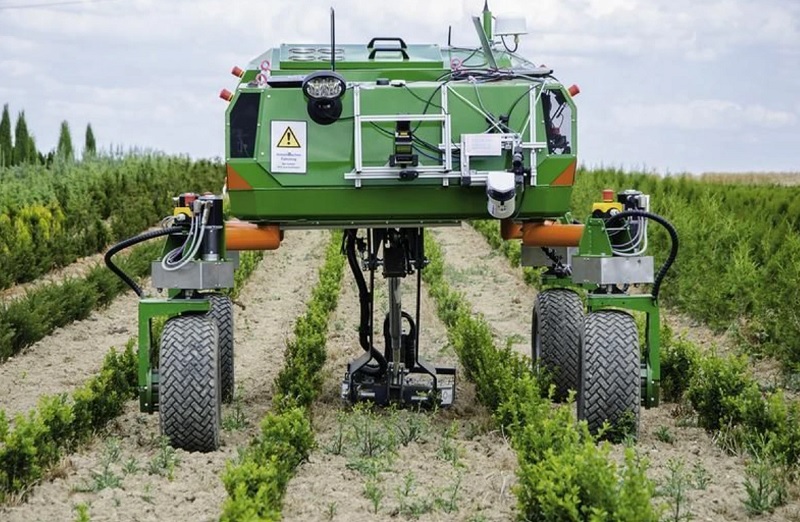
Precision Agriculture and Biotechnology: A Perfect Match?
Precision Agriculture and Biotechnology: A Perfect Match?
In recent years, agriculture has undergone a significant transformation with the integration of technology into traditional farming practices. Two of the most influential advancements in modern agriculture are Precision Agriculture (PA) and Biotechnology. Together, these technologies have the potential to revolutionize the industry, enhancing productivity, sustainability, and resource efficiency. But how well do they complement each other? Let’s explore this synergy.
Understanding Precision Agriculture
Precision Agriculture (PA) is a farming management approach that utilizes data-driven technologies to optimize agricultural practices. By employing Geographic Information Systems (GIS), satellite imagery, drones, and IoT-enabled sensors, PA allows farmers to monitor and manage field variations with remarkable accuracy. This approach reduces waste, increases efficiency, and ultimately improves crop yields.
Key Technologies in Precision Agriculture:
- Remote Sensing & GIS: Real-time satellite and drone imaging to monitor soil conditions, crop health, and environmental factors.
- Variable Rate Technology (VRT): Automated adjustment of inputs like fertilizers, pesticides, and water based on real-time data.
- IoT and Smart Sensors: Devices embedded in fields to provide continuous data on soil moisture, temperature, and nutrient levels.
- Automated Machinery: GPS-guided tractors and robotic harvesters that increase operational efficiency.
The Role of Biotechnology in Agriculture
Biotechnology in agriculture refers to the use of scientific techniques to modify organisms and improve agricultural output. This includes genetic engineering (GE), marker-assisted selection (MAS), and microbial applications that enhance crop resilience, nutrient efficiency, and disease resistance.
Key Advancements in Agricultural Biotechnology:
- Genetically Modified Organisms (GMOs): Crops engineered for drought tolerance, pest resistance, and higher nutritional value.
- CRISPR Gene Editing: Precise modification of plant genomes to develop desirable traits.
- Biofertilizers and Biopesticides: Eco-friendly alternatives to chemical inputs that promote soil health and sustainability.
- Synthetic Biology: Engineering biological systems to create resilient, high-yield crops.
The Synergy Between Precision Agriculture and Biotechnology
While PA focuses on optimizing farming practices through data and automation, biotechnology enhances the genetic and biological potential of crops. The convergence of these fields provides a powerful framework for modern farming.
1. Enhanced Crop Management
Biotech-engineered crops, such as drought-resistant maize or nitrogen-efficient wheat, can be cultivated with precision farming techniques that tailor irrigation and fertilization to specific needs. This integration maximizes productivity while conserving resources.
2. Reduced Environmental Impact
By combining biotechnology-based pest-resistant crops with precision application of pesticides via drones or VRT, farmers can minimize chemical usage while maintaining high yields. This reduces pollution, soil degradation, and adverse effects on non-target organisms.
3. Increased Resilience to Climate Change
Climate change is a major challenge for global agriculture. Precision monitoring of climate patterns, coupled with biotech crops engineered to withstand extreme weather conditions, ensures that farmers can adapt more effectively to unpredictable environments.
4. Optimized Soil and Nutrient Management
Biotech innovations like nitrogen-fixing crops and bioengineered microbes enhance soil health. When integrated with PA-driven soil sensors and data analytics, farmers can fine-tune nutrient applications, reducing waste and improving crop quality.
Challenges and Considerations
While the combination of PA and biotechnology offers immense potential, several challenges must be addressed:
- High Costs of Implementation: Advanced PA equipment and biotech crops require significant initial investment.
- Regulatory and Ethical Concerns: GMOs and gene editing remain contentious in some regions, with strict regulatory frameworks.
- Data Privacy and Security: Farmers must protect sensitive agricultural data from potential cyber threats.
- Adoption Barriers: Small-scale farmers may lack the technical knowledge and financial resources to implement these technologies.
Conclusion
The fusion of Precision Agriculture and Biotechnology represents a groundbreaking shift in modern farming. By leveraging data-driven decision-making alongside genetic advancements, the agriculture sector can achieve greater efficiency, sustainability, and food security. Despite the challenges, continued innovation and supportive policies can ensure that this perfect match leads to a more resilient and productive future for global agriculture.
What’s Next?
As research progresses, we can expect even more sophisticated integrations—such as AI-powered predictive analytics for biotech crops and autonomous robotic systems for precision farming. With the right strategies, PA and biotechnology can shape the future of agriculture, ensuring a balance between productivity and sustainability.
Let us know your thoughts! How do you see these technologies transforming farming in the next decade?













